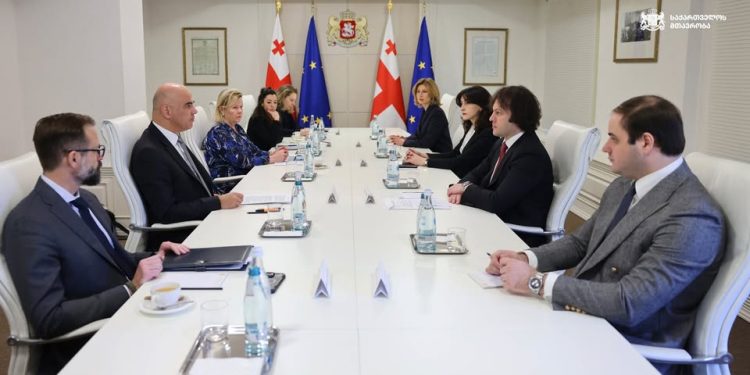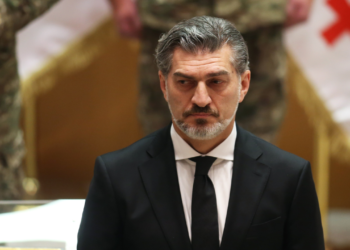On Friday, Georgian Prime Minister Irakli Kobakhidze highlighted that the visit of Alain Berset, Secretary General of the Council of Europe (CoE), served as a clear indication of strong support for Georgia and its people.
Kobakhidze described the discussions with Berset as “productive and insightful” during a press briefing, noting that the two had held high-level talks earlier this week.
The Prime Minister provided an update on the political climate in Georgia, particularly addressing the ongoing protests against the government’s decision to postpone European Union accession talks until 2028. He reassured Berset that the protests had calmed down significantly in recent days, with no further need for police intervention.
He also addressed the issue of administrative detentions, explaining that those involved in violent actions during the protests had been detained but would be released by the end of the month, as Georgia’s law allows a maximum detention period of 15 days. However, Kobakhidze clarified that this does not apply to individuals who face criminal charges, approximately 30 people currently in pretrial detention.
During their meeting, Kobakhidze assured Berset that the investigations into the protests would continue, and that the Georgian government is committed to full cooperation with all relevant bodies, including the CoE.
The two also discussed Georgia’s legislative changes, particularly the law on foreign influence transparency, which requires organizations and media outlets receiving more than 20 percent of their funding from abroad to register as pursuing foreign interests. This law was passed earlier this year amid protests.
Kobakhidze reaffirmed his government’s willingness to engage in dialogue about the law, stating they are open to revising its wording if valid concerns are raised. “We are open to any format for discussion,” he said, adding that if the CoE proposed a specific framework, Georgia would be willing to consider it. The PM further emphasized that the government is prepared to amend the law if it is shown to contradict legal principles.
“Our stance remains unchanged: if anyone can demonstrate negative aspects in the law, we are ready to discuss and address the issue,” he concluded.














